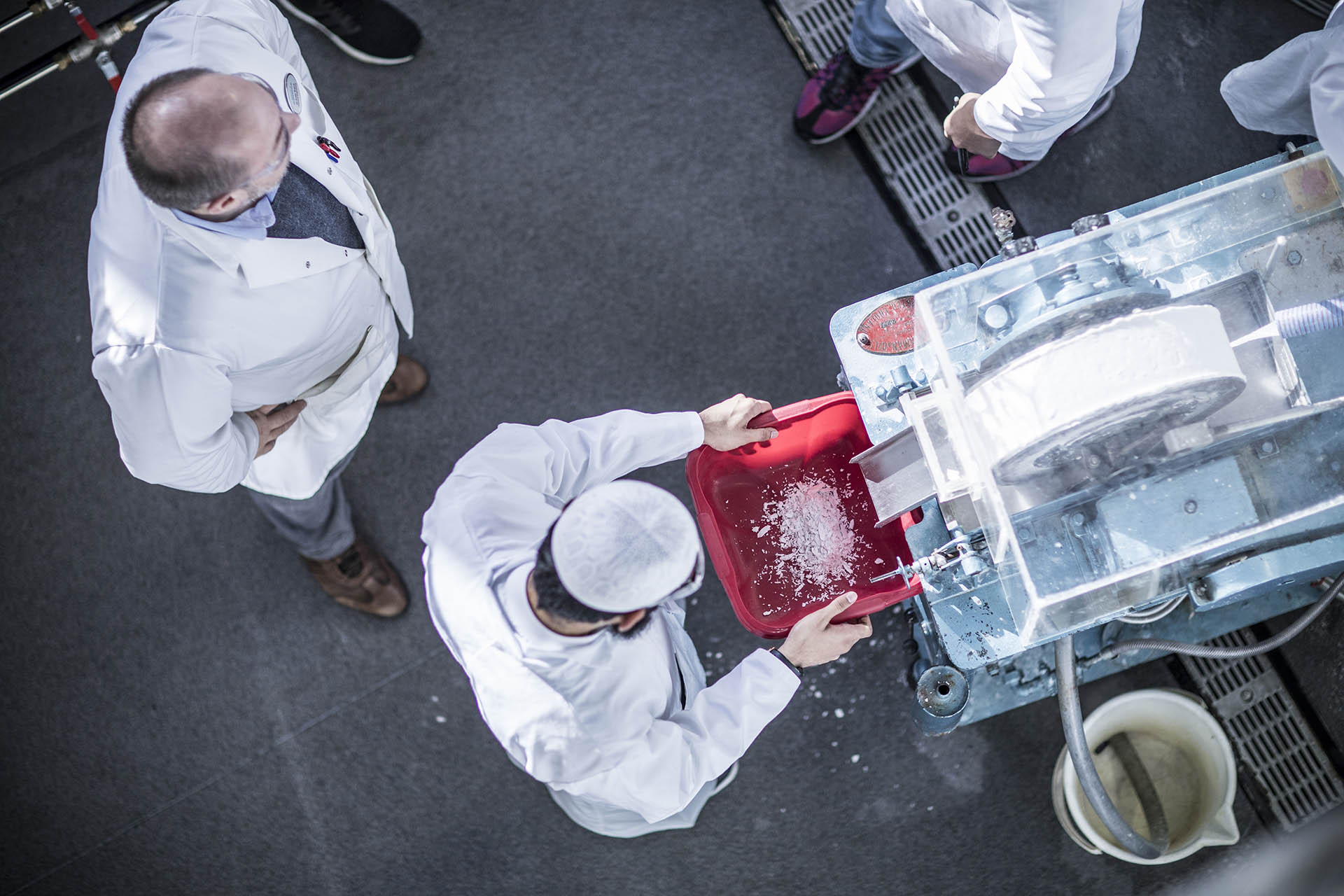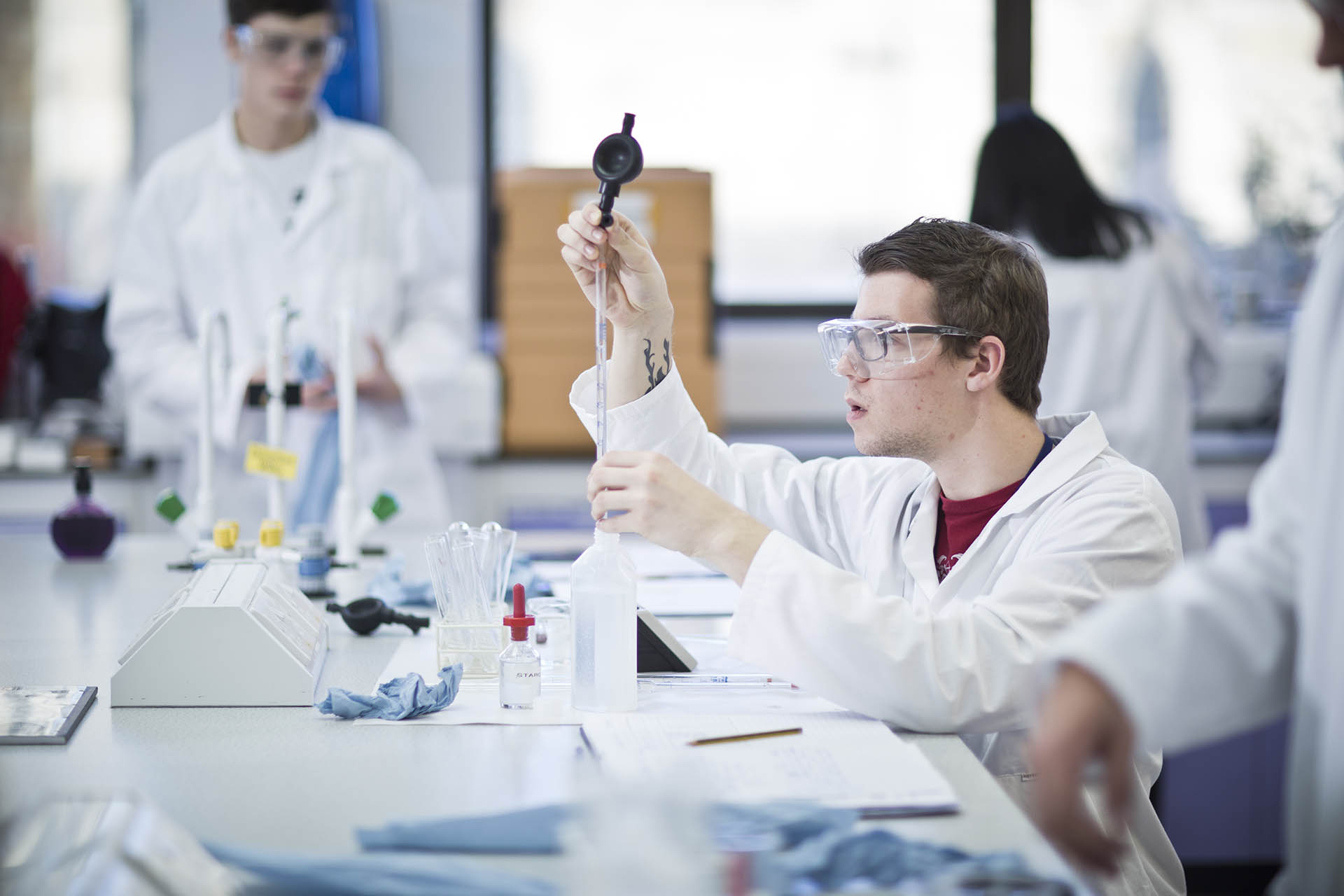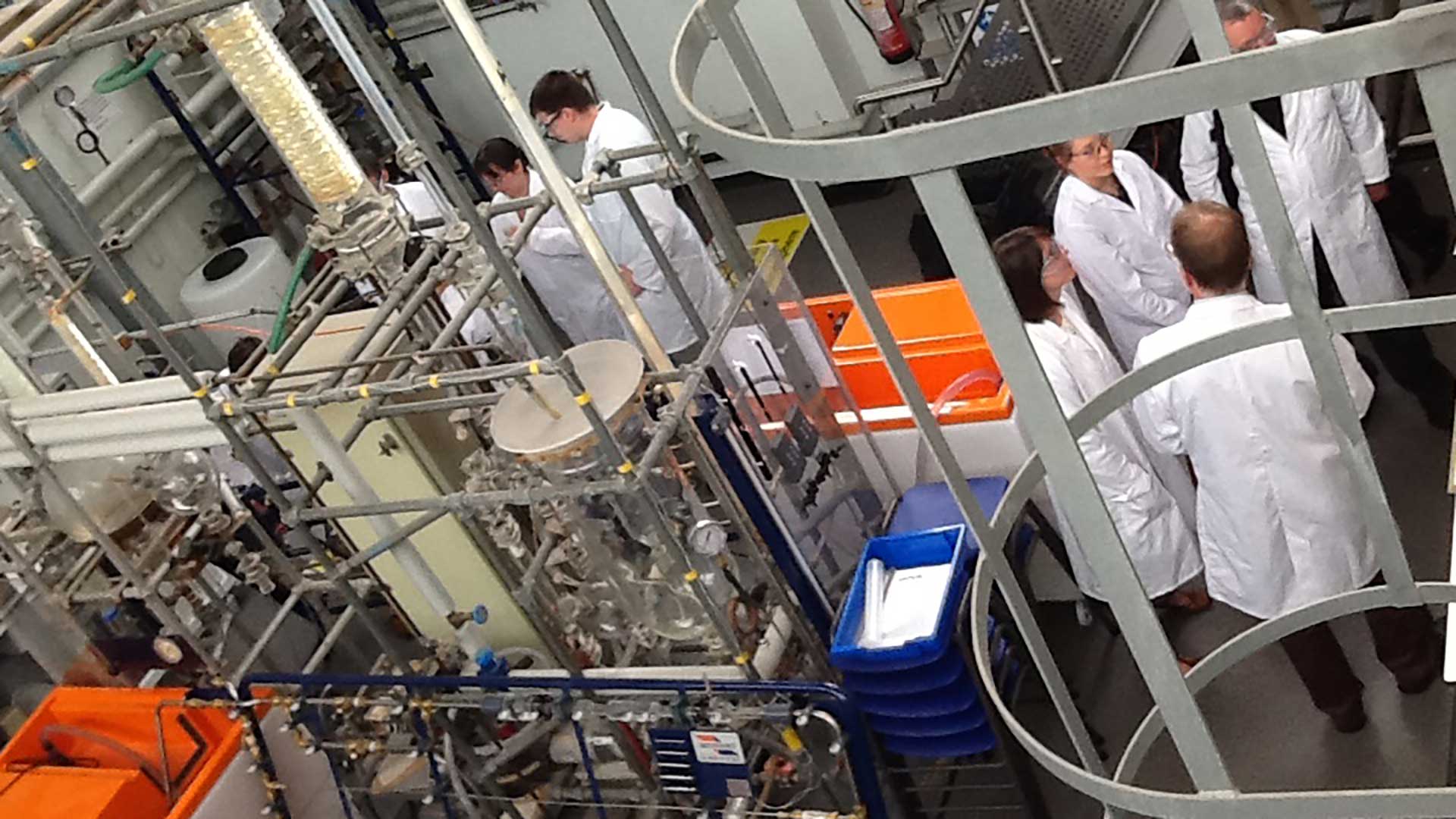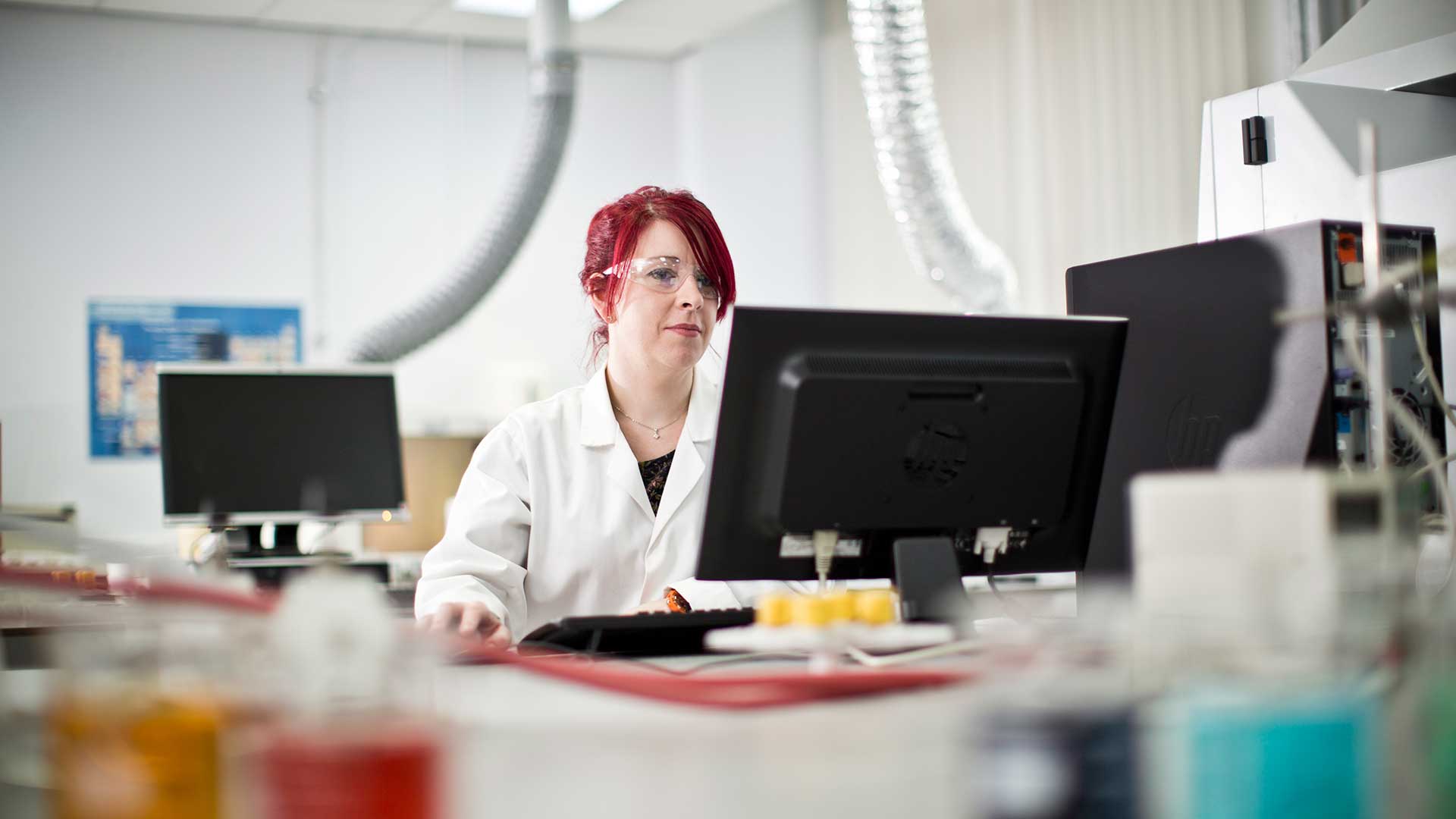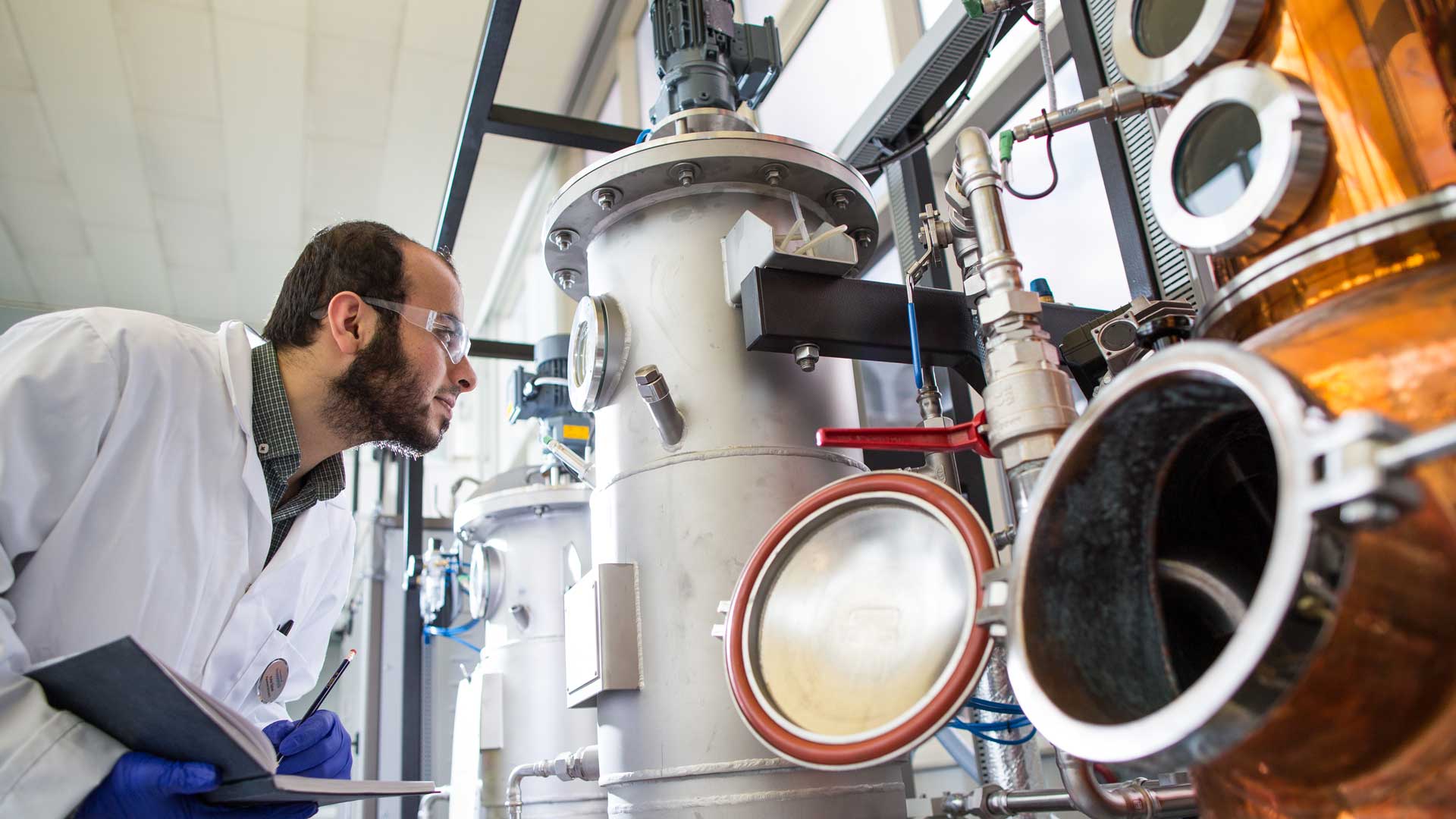
Chemical Engineering
| What are you trying to find? |
|---|
Why Chemical Engineering
Are you fascinated by the science of transformation and the processes that turn raw materials into valuable products? Do you want to innovate solutions for real-world challenges in energy, sustainability, and manufacturing? Then studying Chemical Engineering could be the perfect choice for you. Our courses offer the theoretical foundations, practical skills, and analytical expertise needed to design and optimize chemical processes, preparing you for an impactful career in this essential field. All our undergraduate courses are accredited by the Institution of Chemical Engineers.
You’ll explore key topics in chemical engineering, from reaction engineering to process design and safety systems. With a focus on both scientific principles and hands-on applications, our courses enable you to develop skills in systems analysis, problem-solving, and process optimization. Whether you're interested in renewable energy, pharmaceuticals, or sustainable manufacturing, our course provide a comprehensive approach. You’ll gain an understanding of the sustainable development goals shaping chemical engineering worldwide, equipping you to make a meaningful contribution to industries and communities across the globe.
What can you do with a degree in Chemical Engineering
Chemical engineering goes beyond processing materials; it’s about designing sustainable systems and improving global quality of life. A career in this field lets you make a meaningful difference by developing efficient production methods, advancing renewable energy solutions, and enhancing product safety. Whether it’s optimizing industrial processes, creating eco-friendly products, or innovating in biotechnology, chemical engineering offers diverse and impactful ways to contribute.
In roles like process engineer, environmental engineer, or bioprocess engineer, you’ll work on solving complex challenges across industries. You could design safer manufacturing systems, contribute to clean energy advancements, or work in pharmaceuticals to develop life-saving treatments. As a researcher, you might focus on cutting-edge materials, or in public policy, help shape regulations for safer chemical usage. Whether in industrial design, sustainability, or research, a qualification in chemical engineering equips you to make a lasting impact on technology and the environment.

Dr Athanasios Angelis Dimakis
Reader in Chemical Engineering
Research focuses on ecology, life cycle assessment, and water resource management. Leads H2020 projects on sustainable process industries and precision agriculture, with expertise in techno-economic assessment, process modeling, and industrial symbiosis

Professor Grant Campbell
Professor of Chemical Engineering
His research focuses on cereal process engineering for food, fuel, and chemical applications, emphasising sustainability through cereal-based biorefineries. In 2020 he won IChemE Davidson Medal for Oustanding Mentoring.

Daniel Belton
Fellow in the School of Applied Sciences
His research focuses on graphene-based composites, process simulation, and chemical engineering education. A Chartered Engineer, he integrates innovative teaching with pedagogic research and practice.
Our Facilities
Student Blogs
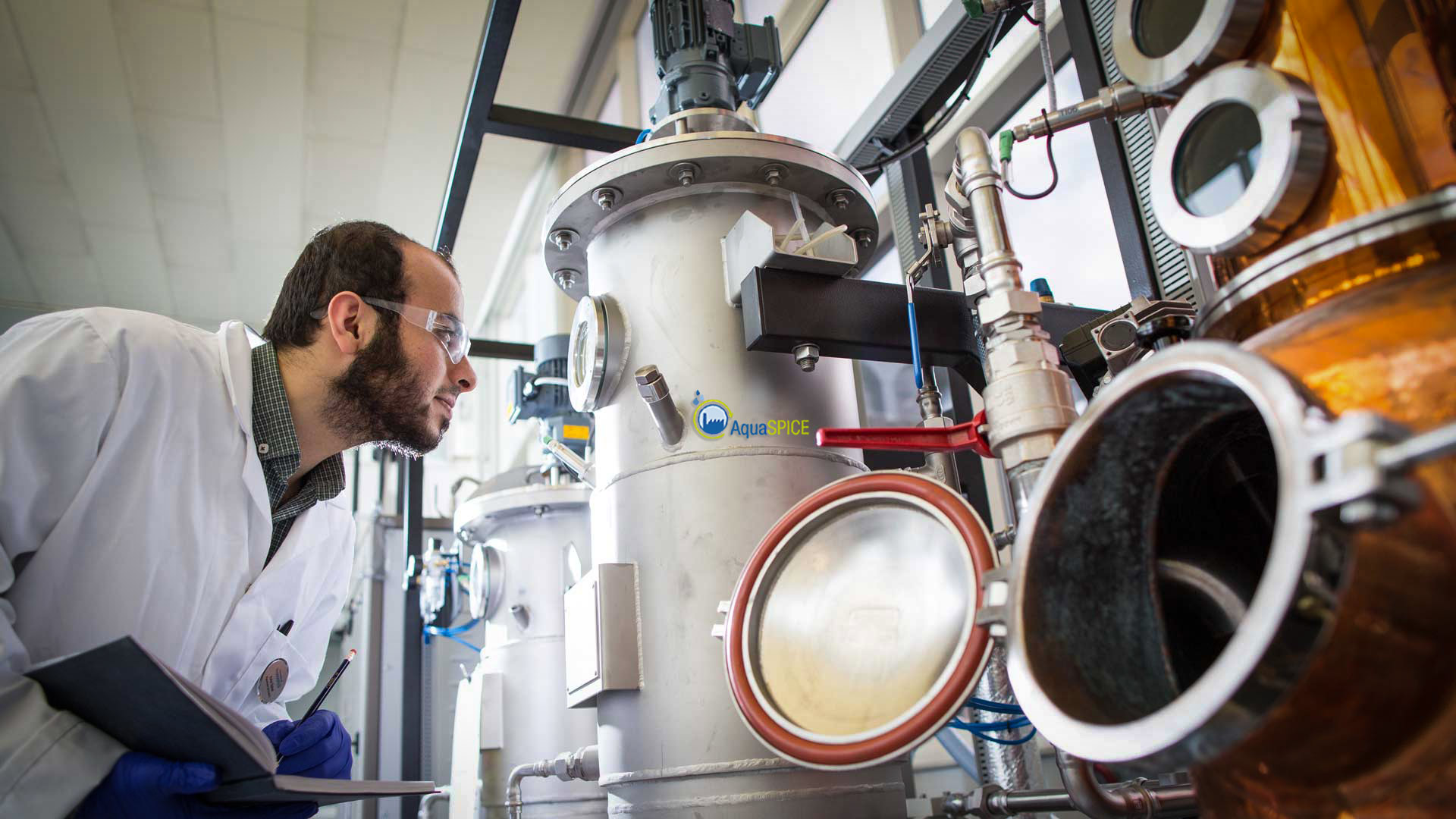
Cultivating global research collaboration
A group of undergraduate chemical engineering students to gain valuable experience of presenting their research to leading experts at RWTH Aachen University.
Open Days and Campus Tours
Attend one of our Open Days or Campus Tours to get a feel of The University and see if it is right for you.
Chat online to our students
Find out what life is really like at Huddersfield by chatting to one of our existing students.
How to apply
Here is what you need to know about applying to the University of Huddersfield.
